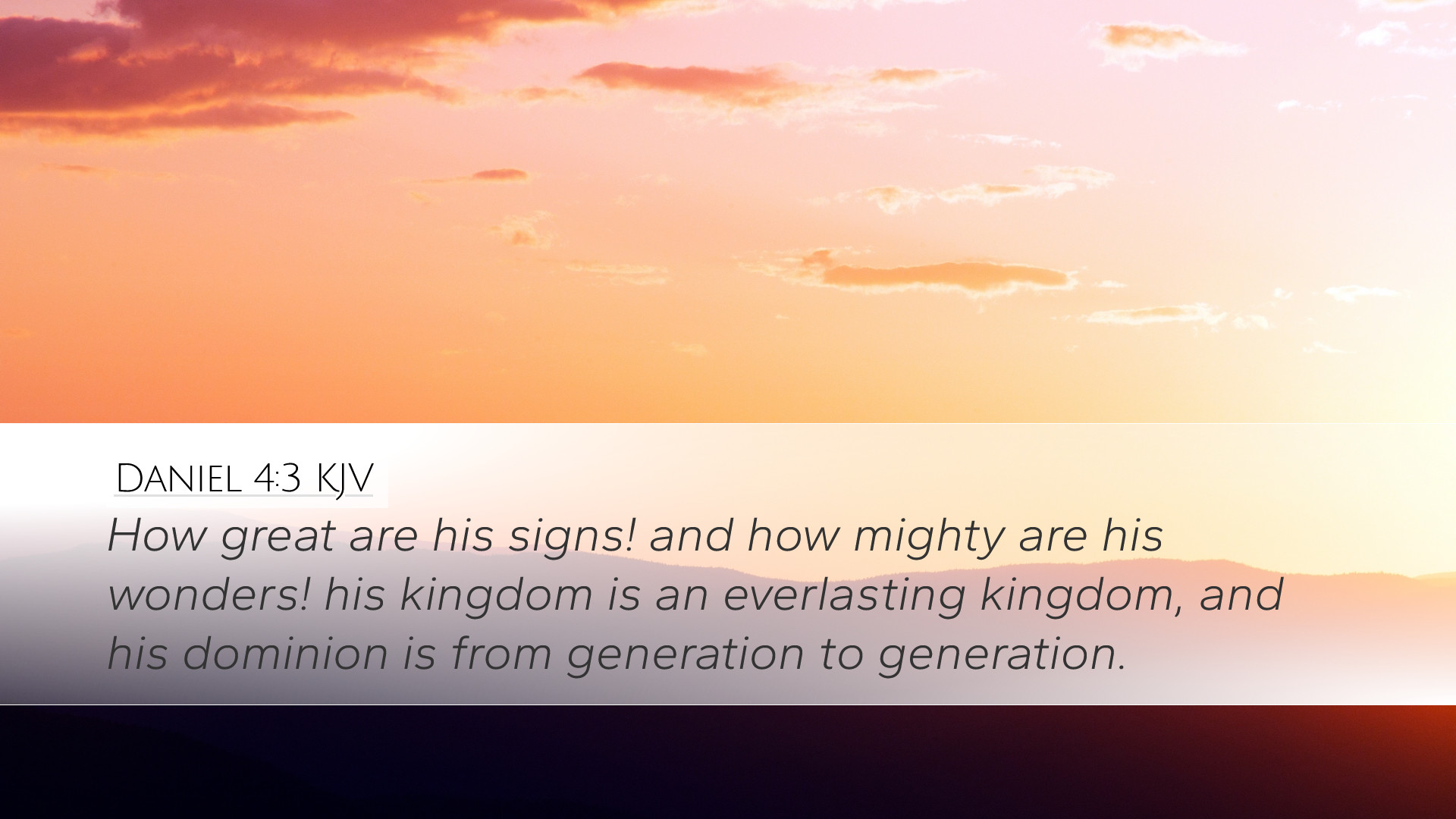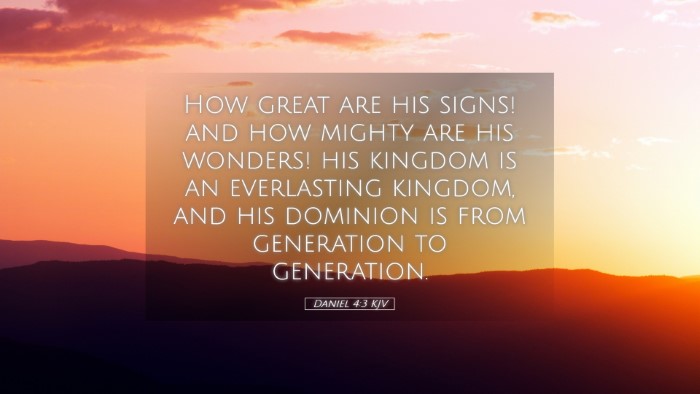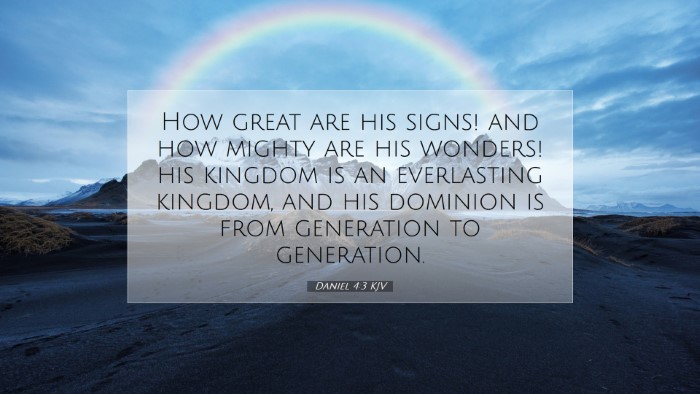Commentary on Daniel 4:3
Verse Text: "How great are His signs! And how mighty are His wonders! His kingdom is an everlasting kingdom, and His dominion is from generation to generation."
Introduction
This verse encapsulates a profound declaration concerning the majesty of God and the nature of His kingdom. It appears in a proclamation by Nebuchadnezzar, who, after experiencing God's sovereignty in a personal manner, reflects on the greatness of God’s wondrous works. The commentary draws from key insights across prominent public domain sources including Matthew Henry, Albert Barnes, and Adam Clarke, providing a rich understanding suitable for pastors, students, theologians, and scholars.
Contextual Background
The Book of Daniel is notable for its emphasis on God’s sovereignty over earthly kingdoms. Chapter 4 is particularly significant as it presents a personal testimony of King Nebuchadnezzar, who acknowledges God's power after a period of pride and resulting humiliation. As we explore Daniel 4:3, we see a king understanding that what he believed to be his omnipotence was merely a temporary facade when held against the might of God.
The Greatness of God's Signs and Wonders
Matthew Henry emphasizes that the expressions of God's greatness, particularly in His signs and wonders, serve not merely as miraculous acts but as revelations of His nature. These signs inspire wonder and respect, indicating that God's actions are fundamentally greater than human achievements.
-
Signs: Typically understood as miraculous phenomena that indicate divine activity, Henry suggests that they serve to reveal God's character and will to humanity.
-
Wonders: These often evoke awe and reverence. Henry indicates that they compel the human heart to recognize and respond to God’s transcendent reality.
The Everlasting Kingdom
Albert Barnes provides a critical elucidation of the phrase "His kingdom is an everlasting kingdom." He points out that unlike the transient empires of the earth, God's dominion is eternal and unshakeable. This declaration of God’s reign has significant implications:
-
Stability and Assurance: Believers can find comfort in the knowledge that God’s kingdom will endure beyond human turmoil and political shifts.
-
Universal Reign: Barnes notes that God’s sovereignty extends over all nations and generations, reinforcing the idea that His authority transcends all temporal powers.
Generational Dominion
Adam Clarke highlights the phrase "His dominion is from generation to generation," underscoring the consistency of God's rule through time. Clarke articulates several dimensions to this dominion:
-
Faithfulness in Sovereignty: God’s promises and His covenant remain true across generations, offering a consistent framework for understanding divine governance.
-
Historical Evidence: Clarke notes that history continually bears witness to the fact that God’s kingdom cannot be overthrown, with each generation adding to the testimony of His faithfulness.
Theological Reflections
This verse is rich with theological implications that can inform pastoral ministry and scholarly examination:
-
The Sovereignty of God: Engaging with these insights encourages believers to rely on the sovereignty of God in their lives, particularly during tumultuous times.
-
Worship and Praise: The response to recognizing God's great signs and wonders should be one of worship, compelling ministers to lead congregations in exalting God for His eternal kingdom.
-
Missionary Implications: Understanding the universal nature of God’s dominion fosters a missional mindset, where Christians are encouraged to proclaim the reign of God to all nations.
Conclusion
Daniel 4:3 serves as a monumental acknowledgment from a pagan king of the eternal and omnipotent nature of God. By combining insights from Matthew Henry, Albert Barnes, and Adam Clarke, we uncover a roadmap for understanding divine sovereignty and the everlasting nature of God's kingdom. This passage not only calls for reflection on God’s signs and wonders but also invites a deeper engagement with the eternal nature of His reign among His people.


